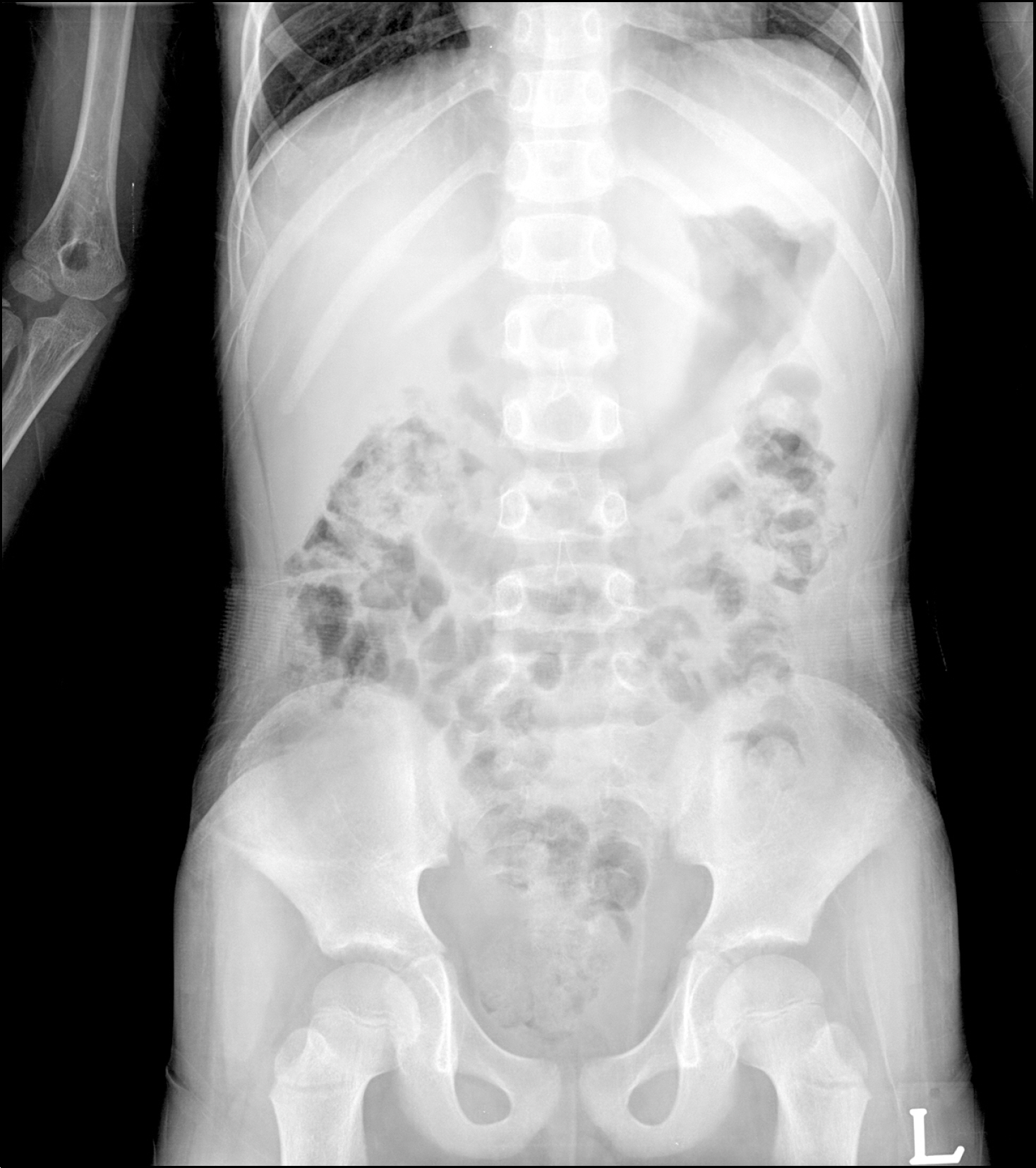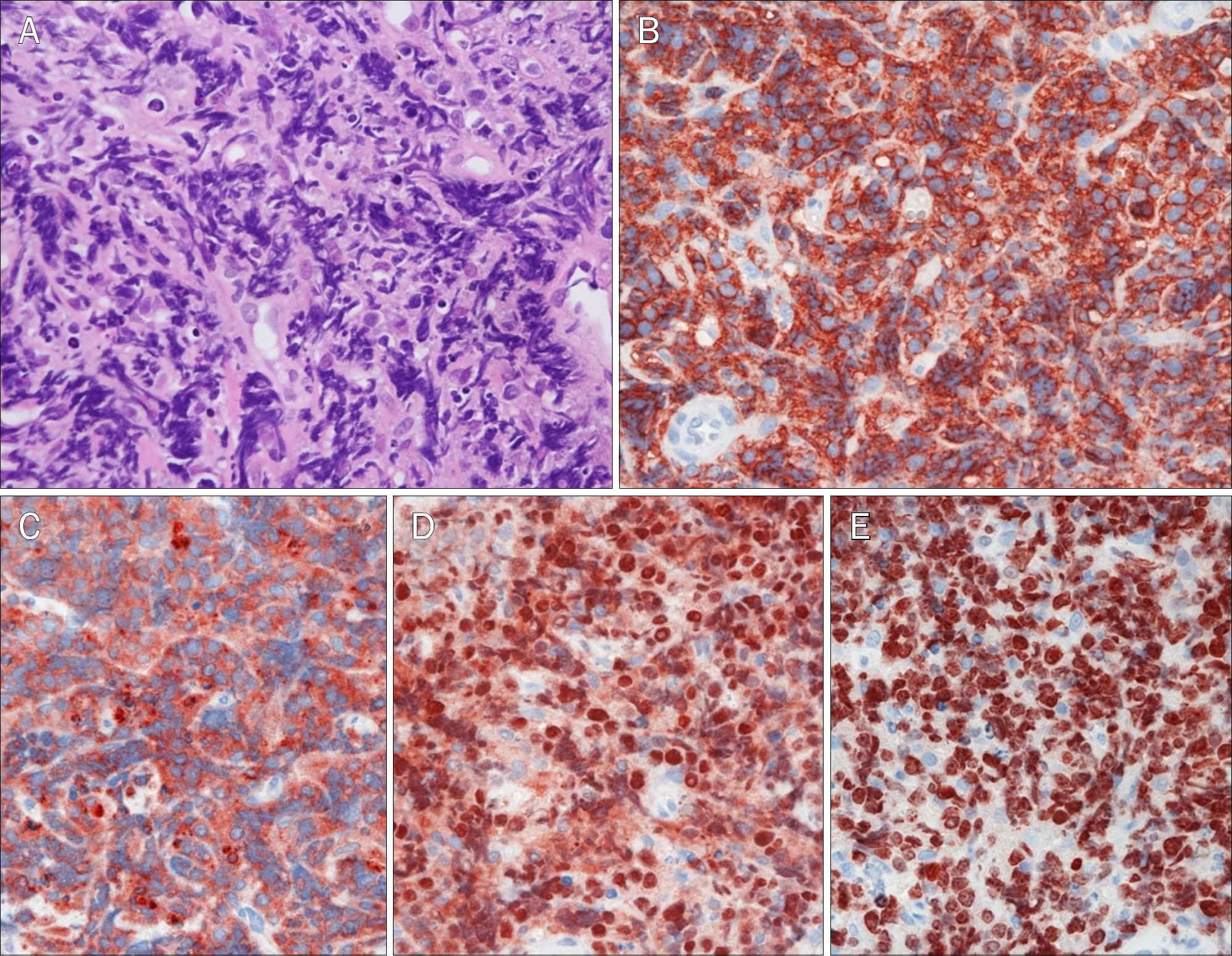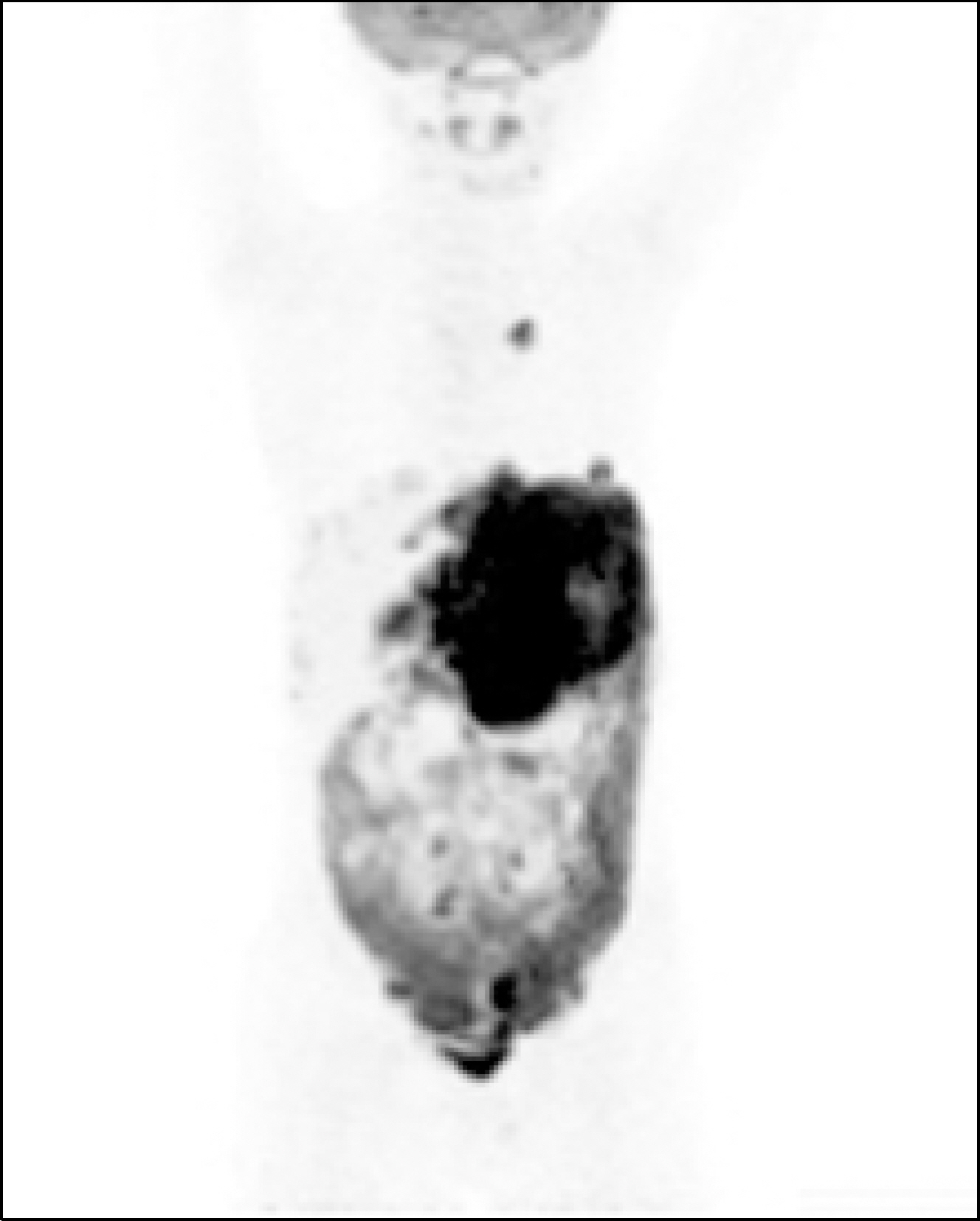Korean J Gastroenterol.
2016 Aug;68(2):87-92. 10.4166/kjg.2016.68.2.87.
Rare Case of Primary Gastric Burkitt Lymphoma in a Child
- Affiliations
-
- 1Department of Pediatrics, Chonbuk National University Hospital, Chonbuk National University Medical School, Jeonju, Korea. hwaph@jbnu.ac.kr
- 2Research Institute of Clinical Medicine, Chonbuk National University-Biomedical Research Institute, Chonbuk National University Hospital, Jeonju, Korea.
- KMID: 2350085
- DOI: http://doi.org/10.4166/kjg.2016.68.2.87
Abstract
- Primary gastric tumors are very rare in children. Burkitt lymphoma is a common type of non-Hodgkin's lymphoma, and gastric Burkitt lymphoma usually occurs in the aged. When involving the gastrointestinal tract, primary gastric Burkitt lymphoma is very rare in younger childhood. Many gastric lymphomas including mucosa-associated lymphoid tissue lymphoma are associated with Helicobacter pylori infection or acute bleeding symptom. We report a seven-year-old boy who presented with only some vomiting and postprandial pain. His upper gastrointestinal endoscopy and biopsy revealed a large primary Burkitt lymphoma with no acute bleeding and no evidence of H. pylori infection. After chemotherapy, he remains in remission.
MeSH Terms
Figure
Reference
-
References
1. Lee SH, Kim HJ, Mun JS, et al. A case of primary hepatic Burkitt's lymphoma. Korean J Gastroenterol. 2008; 51:259–264.2. Ladd AP, Grosfeld JL. Gastrointestinal tumors in children and adolescents. Semin Pediatr Surg. 2006; 15:37–47.
Article3. Allen CE, Kelly KM, Bollard CM. Pediatric lymphomas and histio-cytic disorders of childhood. Pediatr Clin North Am. 2015; 62:139–165.
Article4. Kassira N, Pedroso FE, Cheung MC, Koniaris LG, Sola JE. Primary gastrointestinal tract lymphoma in the pediatric patient: review of 265 patients from the SEER registry. J Pediatr Surg. 2011; 46:1956–1964.
Article5. Kesik V, Safali M, Citak EC, Kismet E, Koseoglu V. Primary gastric Burkitt lymphoma: a rare cause of intraabdominal mass in childhood. Pediatr Surg Int. 2010; 26:927–929.
Article6. Pickett LK, Briggs HC. Cancer of the gastrointestinal tract in childhood. Pediatr Clin North Am. 1967; 14:223–234.
Article7. Ferlay J, Soerjomataram I, Dikshit R, et al. Cancer incidence and mortality worldwide: sources, methods and major patterns in GLOBOCAN 2012. Int J Cancer. 2015; 136:E359–E386.
Article8. Curtis JL, Burns RC, Wang L, Mahour GH, Ford HR. Primary gastric tumors of infancy and childhood:54-year experience at a single institution. J Pediatr Surg. 2008; 43:1487–1493.9. Kim HY, Park JH. The role of endoscopy for tumorous conditions of the upper gastrointestinal tract in children. Korean J Pediatr Gastroenterol Nutr. 2005; 8:31–40.
Article10. Kang G, Park YS, Jung ES, et al. Gastrointestinal stromal tumors in children and young adults: a clinicopathologic and molecular genetic study of 22 Korean cases. APMIS. 2013; 121:938–944.
Article11. Khurshed A, Ahmed R, Bhurgri Y. Primary gastrointestinal malignancies in childhood and adolescence–an Asian perspective. Asian Pac J Cancer Prev. 2007; 8:613–617.12. Kamona AA, El-Khatib MA, Swaidan MY, et al. Pediatric Burkitt's lymphoma: CT findings. Abdom Imaging. 2007; 32:381–386.
Article13. Howell JM, Auer-Grzesiak I, Zhang J, Andrews CN, Stewart D, Urbanski SJ. Increasing incidence rates, distribution and histological characteristics of primary gastrointestinal non-Hodgkin lymphoma in a North American population. Can J Gastroenterol. 2012; 26:452–456.
Article14. Bautista-Quach MA, Ake CD, Chen M, Wang J. Gastrointestinal lymphomas: morphology, immunophenotype and molecular features. J Gastrointest Oncol. 2012; 3:209–225.15. Perkins AS, Friedberg JW. Burkitt lymphoma in adults. Hematology Am Soc Hematol Educ Program. 2008; 2008:341–348.
Article16. Olaniyi JA. Burkitt lymphoma: a review. Sci Rep. 2012; 1:337. 1–4.17. Baumgaertner I, Copie-Bergman C, Levy M, et al. Complete remission of gastric Burkitt's lymphoma after eradication of Helicobacter pylori. World J Gastroenterol. 2009; 15:5746–5750.18. Stovroff MC, Coran AG, Hutchinson RJ. The role of surgery in American Burkitt's lymphoma in children. J Pediatr Surg. 1991; 26:1235–1238.
Article
- Full Text Links
- Actions
-
Cited
- CITED
-
- Close
- Share
- Similar articles
-
- Gastric Burkitt Lymphoma in a Six Year-old Boy Presenting with Upper Gastrointestinal Bleeding
- A case of Burkitt's lymphoma cell leukemia in primary gastric lymphoma
- Primary Burkitt's Lymphoma in the Nasal Cavity and Paranasal Sinuses
- A Case of Primary Gastric Burkitt's Lymphoma
- Terminal Ileal Burkitt's Lymphoma in an Adult







